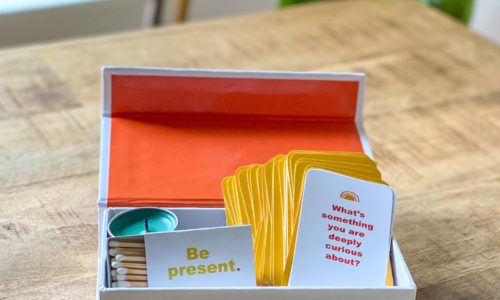You are happy and secure about why you chose Acton Academy but your friends say things that trigger worry and doubt.
- Aren’t you worried about getting into college?
- I just don’t think I could do something so alternative. You are brave.
- Won’t your children miss out on learning time management if they don’t have homework?
“Education” is an every day topic with emotion lurking around every prosy corner. For isn’t everyone an expert about school? And aren’t the words “my child’s school” loaded with one’s own childhood memories, judgments and feelings of worth as a parent?
Maybe each conversation isn’t quite this loaded but there may be moments when a simple question from a neighbor can spark doubts about peer teaching, self-paced learning and the Socratic method.
For these moments, I’d like to share my cheat sheet so you can relax and have fun:
First, a decent cocktail party response is: “I don’t understand everything about the ideal learning method but I do know my child is joyful at school, fully engaged and has growing curiosity. I am learning a lot myself which feels great. The evidence and data are there when I need it but it’s the journey we are enjoying. Cheers!” (Edit to fit your child.)
Second, if you want to dive deeper with those friends who are authentically curious, here are four resources that you can send along to answer questions. Peruse them yourself and you’ll be reminded what curious, brilliant parents you are for choosing this journey for your family.
1) Watch this: Amanda Horvath’s college project – a mini-documentary of Acton Academy told in large part by the students.
password: disruptive
2) Read this: The most recent article about Acton Academy in Getting Smart (Thank you, Kaylie for giving a great interview for us!)
http://gettingsmart.com/2014/01/teaching-learning-acton-without-teaching/
3) Remember this: Acton Academy focuses on grit and the process of learning rather than a standardized, grade-based curriculum. Here is why we think this is best for our children:
http://www.ted.com/talks/angela_lee_duckworth_the_key_to_success_grit.html
4) And this: We are instilling a growth mindset versus a fixed mindset. The setbacks and failures in our daily experience at school are important. This one minute video explains the difference between fixed and growth mindsets.
http://www.youtube.com/watch?v=o8JycfeoVzg
I wish you many happy conversations. Who knows? You may just inspire a friend to find his calling.


